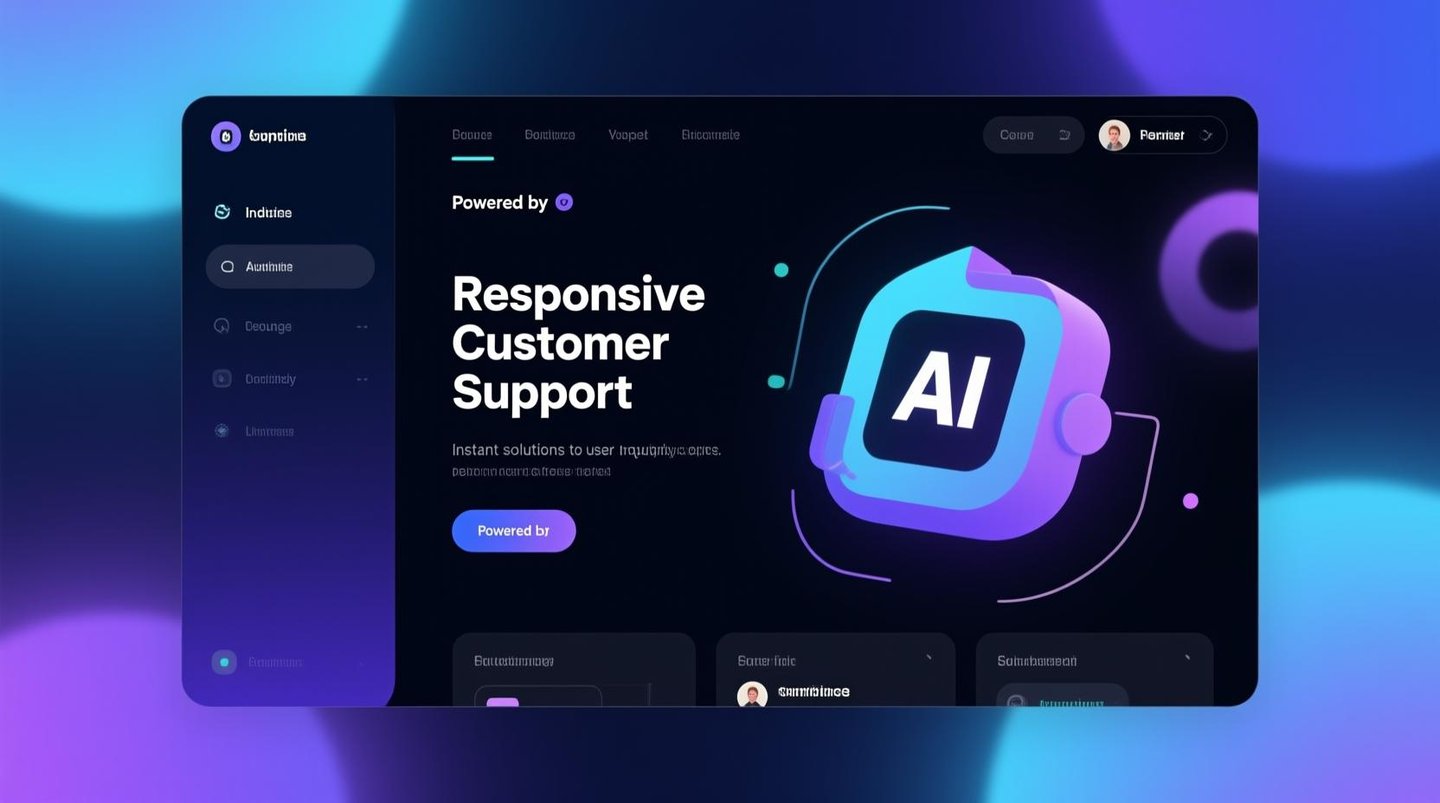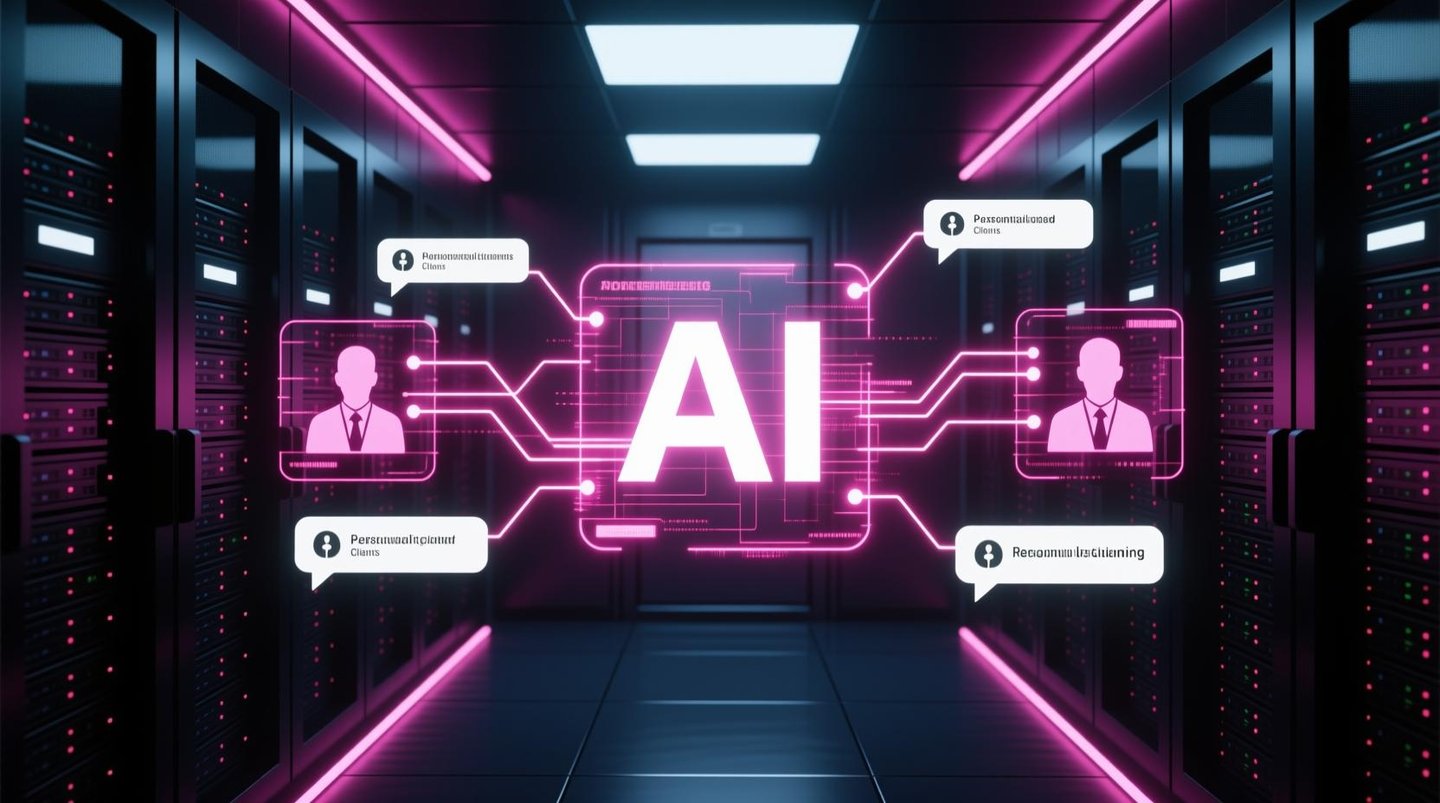Bring Your First AI Automation Live—In Just 7 Days! “Book Free Demo”
AI Business Automation for Small Business | Complete 2025 Guide - MarketWhale
Discover how AI business automation transforms operations for small business and enterprise owners. Get actionable strategies, real case studies, and implementation steps from industry experts. Start your AI transformation today.
INSIGHTS
9/26/20257 min read
How AI Business Automation Transforms Small Business Operations: The Complete 2025 Guide for Business Owners


Introduction: Why Every Business Owner Needs AI Automation in 2025
As a business owner, you're constantly juggling dozens of tasks that pull you away from strategic growth. What if I told you that businesses using AI automation are seeing 300% more leads and 85% faster customer response times while reducing manual work by 90%?
These aren't just numbers—they're real results from business owners who've made the leap to AI-powered operations. In this comprehensive guide, I'll show you exactly how to implement AI automation in your business, whether you're running a small local service company or managing an enterprise operation.
What Is AI Business Automation and Why It Matters Now
AI business automation uses artificial intelligence to handle repetitive tasks, communicate with customers, and streamline operations without constant human oversight. Think of it as having a tireless team member who never takes breaks, never gets sick, and learns from every interaction.
The current wave of AI innovation is driving unprecedented business impact through enhanced intelligence capabilities, agentic AI, and improved automation that helps businesses bolster defenses and accelerate response times.
The Reality for Business Owners Today
Every day, you're losing potential customers because:
Phone calls go unanswered after hours
Website visitors leave without engaging
Follow-up emails get forgotten in busy schedules
Customer service inquiries pile up
Manual data entry eats up productive time
AI automation solves these problems systematically, creating a business that works for you 24/7.
The Essential AI Automation Systems Every Business Needs
1. AI Chatbots and Conversational AI: Your 24/7 Customer Service Team
What it does: AI chatbots handle customer inquiries, qualify leads, and book appointments across your website, social media, and messaging platforms.
Real Impact: One of our clients, a dental practice in Austin, saw their appointment bookings increase by 240% after implementing AI chatbots that could schedule consultations at midnight, on weekends, and during busy periods.
Implementation Steps:
Install AI chatbot on your website and social media
Train it with your most common customer questions
Connect it to your scheduling system
Set up lead qualification flows
Monitor and refine responses based on customer interactions
2. Automated Lead Nurturing: Turn Prospects Into Paying Customers
What it does: AI analyzes customer behavior and sends personalized messages at the right time to guide prospects through your sales funnel.
Business Owner Benefits:
No more forgotten follow-ups
Personalized communication at scale
Higher conversion rates from warm leads
Automated email sequences that feel human
Case Study: A manufacturing company increased their sales conversions by 65% using AI lead nurturing that automatically sent relevant case studies to prospects based on their industry and company size.
3. Smart Appointment Scheduling and Calendar Management
What it does: AI handles appointment booking, rescheduling, and calendar optimization without your staff lifting a finger.
Time Savings: Business owners report saving 15-20 hours per week on scheduling tasks alone.
Features You Need:
Automatic appointment confirmation and reminders
Smart calendar conflict resolution
Buffer time management
Integration with your existing calendar systems
4. Review Management and Reputation Automation
What it does: AI monitors reviews across all platforms, responds professionally, and automatically requests feedback from satisfied customers.
Why It's Crucial: 88% of consumers trust online reviews as much as personal recommendations, and businesses with active review management see 25% more customers.
Automated Processes:
Review monitoring across Google, Yelp, Facebook, and industry-specific platforms
Professional response generation for negative reviews
Automated happy customer review requests
Reputation score tracking and alerts
5. Social Media and Content Automation
What it does: AI creates, schedules, and optimizes your social media presence while maintaining your brand voice.
Business Impact: Consistent social media presence without the daily hassle of content creation and posting.


Industry-Specific AI Automation Solutions
For Professional Services (Lawyers, Accountants, Consultants)
Priority Systems:
Client intake automation
Document processing and organization
Appointment scheduling with buffer times
Follow-up sequence automation for consultations
ROI Example: A law firm reduced client onboarding time from 3 days to 30 minutes while improving client satisfaction scores by 40%.
For Healthcare and Medical Practices
Essential Automations:
Patient appointment scheduling
Insurance verification workflows
Prescription refill reminders
Patient education content delivery
Compliance Consideration: All healthcare AI systems must be HIPAA-compliant and maintain patient privacy standards.
For Retail and E-commerce Businesses
High-Impact Areas:
Customer service chat support
Order status updates
Inventory management alerts
Personalized product recommendations
For Service-Based Local Businesses (HVAC, Plumbing, Landscaping)
Critical Automations:
Emergency service dispatch
Job scheduling optimization
Customer follow-up for maintenance reminders
Seasonal service promotions
Implementation Roadmap: Getting Started With AI Automation
Phase 1: Foundation (Weeks 1-2)
Audit Current Processes: Identify your biggest time drains and customer pain points
Choose Priority System: Start with your highest-impact area (usually customer communication)
Set Up Basic AI Chatbot: Install on website with 10-15 common questions
Connect Calendar Integration: Enable basic appointment scheduling
Phase 2: Expansion (Weeks 3-4)
Add Social Media Automation: Connect Facebook, Instagram, and relevant platforms
Implement Review Management: Set up monitoring and response systems
Create Lead Nurturing Sequences: Develop 3-5 email follow-up sequences
Test and Refine: Monitor performance and adjust settings
Phase 3: Optimization (Weeks 5-8)
Advanced Workflow Automation: Connect multiple systems for seamless data flow
Performance Analytics Setup: Track ROI and key metrics
Staff Training: Ensure team knows how to work with AI systems
Continuous Improvement: Regular optimization based on data insights


Measuring Success: Key Metrics for AI Automation ROI
Customer Service Metrics
Response Time: Target 85% faster responses (industry average improvement)
Customer Satisfaction: Track CSAT scores before and after implementation
Resolution Rate: Percentage of issues resolved without human intervention
Sales and Marketing Metrics
Lead Generation: Track increases in qualified leads (300% improvement is achievable)
Conversion Rates: Monitor sales funnel improvements
Customer Lifetime Value: Measure long-term customer relationships
Operational Efficiency
Time Savings: Hours saved on manual tasks per week
Cost Reduction: Compare staffing costs before and after automation
Revenue per Employee: Track productivity improvements
Common Implementation Challenges and Solutions
Challenge 1: "AI Will Replace My Personal Touch"
Reality: AI enhances your personal touch by handling routine tasks, freeing you to focus on high-value customer relationships.
Solution: Use AI for initial interactions and data collection, then seamlessly transfer to human staff for complex situations.
Challenge 2: "It's Too Complicated for My Business"
Reality: Modern AI automation platforms are designed for non-technical users with simple setup processes.
Solution: Start with one system, master it, then gradually expand. Most business owners see value within the first week.
Challenge 3: "The Cost Seems High"
Reality: The average ROI on AI automation is 300-500% within the first year through increased efficiency and customer capture.
Solution: Calculate your current costs of missed opportunities, overtime labor, and manual processes. AI automation typically pays for itself within 90 days.


Advanced Strategies for Maximizing AI Automation Impact
Integration with Existing Systems
Your AI automation should work seamlessly with:
Customer Relationship Management (CRM) systems
Email marketing platforms
Accounting software
Project management tools
Data-Driven Optimization
Monthly Review Process:
Analyze customer interaction patterns
Identify bottlenecks in automated processes
Refine AI responses based on customer feedback
Adjust automation rules for better performance
Scalability Planning
As your business grows, your AI systems should scale with you:
Multi-location Support: Consistent automation across different locations
Team Management: Role-based access and permissions
Advanced Analytics: Deeper insights as data volume increases
The Future of AI in Business: What's Coming in 2025 and Beyond
AI-native startups are pushing deeper into industry-specific workflows, automating insurance claims, legal briefings, and revenue cycle management, forcing traditional businesses to evolve or become obsolete.
Emerging Trends to Watch
Agentic AI: AI systems that can make decisions and take actions on behalf of business owners with minimal supervision.
Industry-Specific Solutions: More tailored AI automation for specialized industries like healthcare, legal services, and manufacturing.
Voice-Activated Business Operations: AI systems that respond to voice commands for hands-free business management.
Preparing Your Business for the Next Wave
Build a Strong Data Foundation: Clean, organized customer data enables more sophisticated AI implementations
Develop AI Literacy: Ensure key team members understand AI capabilities and limitations
Create Flexible Systems: Choose AI platforms that can adapt to changing business needs
Making the Decision: Is Your Business Ready for AI Automation?
You're Ready If:
You're handling more than 20 customer inquiries per day
Your team spends significant time on repetitive tasks
You're missing business opportunities due to capacity limitations
You want to scale operations without proportionally increasing labor costs
Start Here Today:
Identify Your Biggest Pain Point: Customer service, lead follow-up, or scheduling?
Calculate Current Costs: Time and missed opportunities from manual processes
Set Clear Goals: What specific outcomes do you want to achieve?
Choose One System: Start with the highest-impact automation for your business


Conclusion: Your AI-Powered Business Transformation Starts Now
AI business automation isn't just a competitive advantage anymore—it's becoming essential for business survival and growth. The companies that embrace these technologies now will be the ones dominating their markets in 2025 and beyond.
The question isn't whether you can afford to implement AI automation. The question is: can you afford not to?
Every day you wait is another day your competitors get ahead, another potential customer walks away, and another opportunity for efficiency gets missed. But the good news? You can start seeing results within your first week of implementation.
Ready to Transform Your Business Operations?
At MarketWhale, we've helped over 150 businesses across 15+ industries implement AI automation systems that actually work. Our approach isn't about replacing your personal touch—it's about amplifying it.
Get started with our proven 7-day AI implementation program:
Free consultation to identify your highest-impact automation opportunities
Custom AI system design for your specific business needs
Complete setup and integration with your existing tools
Staff training and ongoing optimization support
Book your free strategy session today and discover how AI automation can transform your business operations, increase your revenue, and give you back the time to focus on what matters most—growing your business and serving your customers.
This guide represents insights from working with 150+ businesses across multiple industries. Results may vary based on implementation quality and business-specific factors. All case studies represent real client results with details anonymized for privacy.
FAQ Section
How much does AI business automation cost?
Implementation costs vary based on business size and complexity, but most small businesses see positive ROI within 90 days. The average monthly investment ranges from $300-2000, which typically pays for itself through increased efficiency and captured opportunities.
Will AI automation work with my existing software?
Modern AI automation platforms integrate with virtually all major business software including popular CRM systems, email platforms, scheduling tools, and accounting software. Integration is typically seamless and doesn't require changing your existing workflows.
How long does it take to see results?
Most businesses see immediate improvements in response times and customer engagement. Full ROI typically becomes apparent within 30-90 days, with some businesses seeing measurable improvements within the first week of implementation.
Do I need technical skills to manage AI automation?
No technical skills required. Modern AI automation platforms are designed for business owners with user-friendly interfaces and step-by-step setup processes. Most systems can be managed with basic computer skills.
What if my customers prefer human interaction?
AI automation enhances rather than replaces human interaction. The system handles routine inquiries and tasks, allowing your team to focus on complex issues and relationship building. Customers typically appreciate faster response times and 24/7 availability.
AI Systems
AI solutions for businesses, automation, and marketing.
© 2025. All rights reserved.